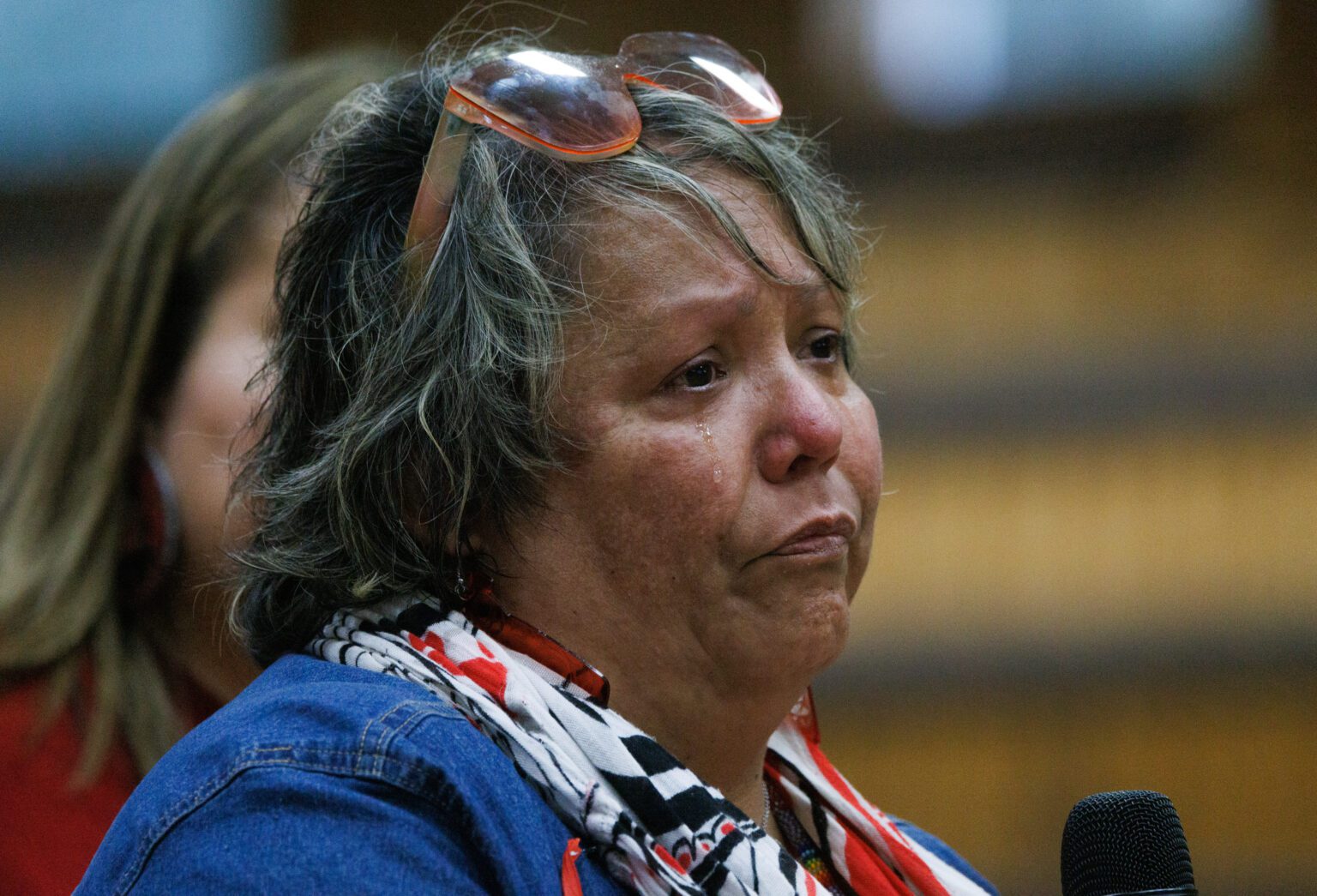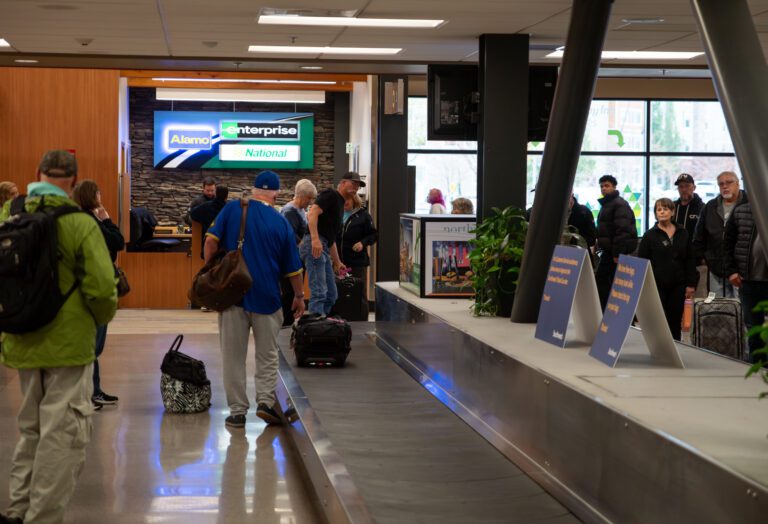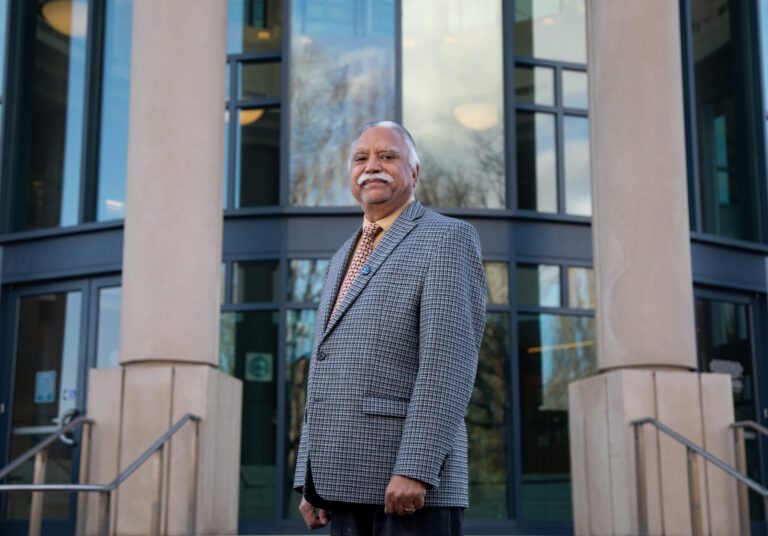On the eve of Missing and Murdered Indigenous Persons (MMIP) day, members of the Lummi Nation gathered to honor missing and murdered members of their tribe and others across the United States in recent years.
The May 4 event, organized by the Lummi Victims of Crime department, brought together tribal and community members for a candlelight vigil and a discussion circle, where family members had the chance to share stories of their missing family members.
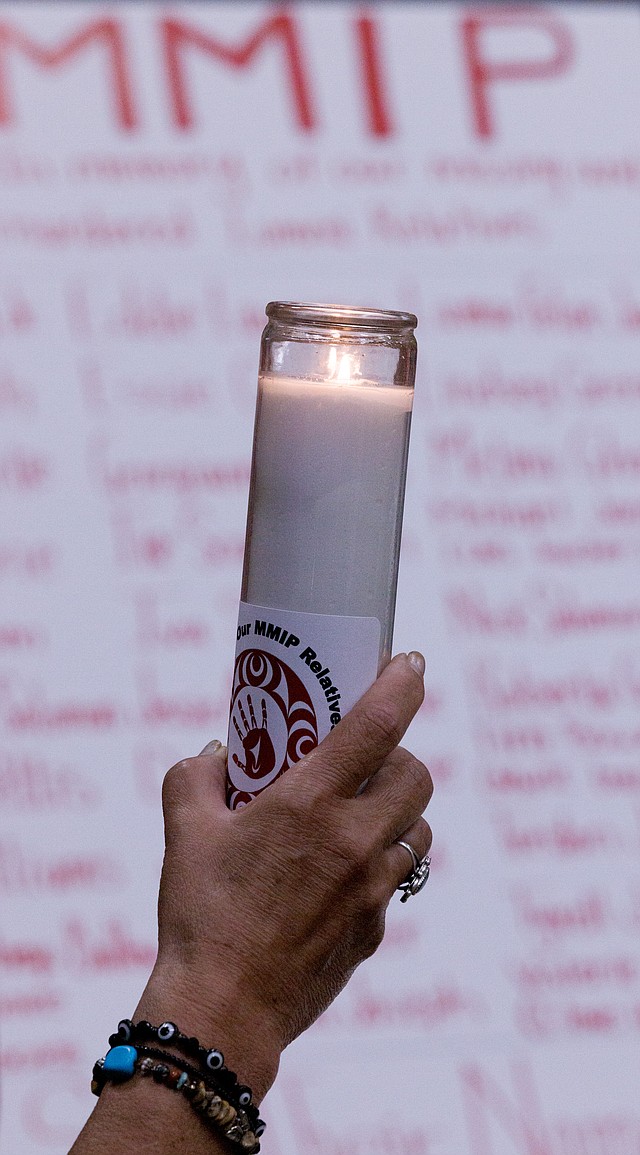 A candle is lit as the names of 31 Missing and Murdered Indigenous People (MMIP) are read during the event. (Andy Bronson/Cascadia Daily News)
A candle is lit as the names of 31 Missing and Murdered Indigenous People (MMIP) are read during the event. (Andy Bronson/Cascadia Daily News)
For some, the annual event is about bringing awareness to the high rates of violence Indigenous communities face across the country. For others, it was about healing together.
“The agony and the grief doesn’t go away,” said Natalie Williams, whose mother, Valerie Jefferson, was killed more than a decade ago. “There is never a day that goes by where I don’t wish things were different.”
Jefferson went missing in the Lummi Nation almost 11 years ago, when Williams said she hadn’t heard from her for days. Five days after she was reported missing, Jefferson’s body was found in her home, where she had been murdered by her husband Kevin O’Leary, Williams’ stepfather.
Williams said she and her siblings made a pact to carry on their mom’s legacy of love.
“She was so loving, so thoughtful, so giving,” Williams said. “Whether you were coming or going, she always said to all of our family members and friends, ‘I love you more.’”
Signs with Jefferson’s name, as well as the names of 30 others declared missing or murdered, adorned the walls of the Wex’liem Community Building during the May 4 event. Written just below her name, in red letters, was her phrase, “I love you more.”
American Indian and Alaska Native men and women experience significantly higher rates of violence in the United States than non-Native communities, according to the National Institute of Justice, part of the U.S. Department of Justice (DOJ). More than four in five Native men and women have experienced violence in their lifetime. They also see much higher rates of assault and murder than non-Native individuals, according to a report funded by the DOJ.
MMIP awareness day initially started as a memorial for 21-year-old Hannah Harris, a citizen of the Northern Cheyenne Tribe in Montana, who was killed in 2013. Her birthday, May 5, was recognized by the U.S. Senate as a national day of awareness in 2017. This year marks the third time the event has been federally recognized.
That recognition, Lummi members said, is vital after decades of losing family members to violence.
“It’s monumental because it gives people like my mom a voice,” Williams said. “It felt like the world didn’t know how much they mattered. Now we have a platform to vocalize and get the word out for those that are missing.”
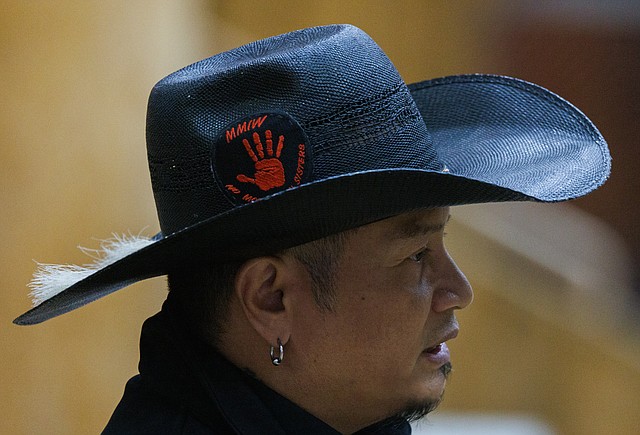 David Yelloweyes sports a Missing and Murdered Indigenous Women (MMIW) patch on his hat as he as speaks about violence in his life during the event. (Andy Bronson/Cascadia Daily News)
David Yelloweyes sports a Missing and Murdered Indigenous Women (MMIW) patch on his hat as he as speaks about violence in his life during the event. (Andy Bronson/Cascadia Daily News)
In 2019, missing Indigenous women from Whatcom County, including from the Lummi Nation and the Nooksack Indian Tribe, represented about 10% of missing Indigenous women in Washington state, according to a study from the Washington State Patrol.
On May 1 this year, more than 140 Indigenous people were missing in Washington. Four of them are missing from Whatcom County, including a 14-year-old girl who has been missing for more than 500 days.
To address the growing epidemic of missing and murdered Indigenous people in the state, the Washington state Legislature unanimously passed House Bill 1177, creating a “cold case” unit for law enforcement agencies.
The legislation, pushed by the state’s Missing and Murdered Indigenous Women and People Task Force, will support Washington’s emergency alert system for missing Indigenous people, created in 2022.
The tribes, too, have worked to create support systems for tribal members experiencing violence. Programs like the Nooksack Indian Tribe’s local domestic violence center, known as the Tl’ils Ta’á’altha Victims of Crime, and the Lummi Nation’s victims of crime group, provide resources for victims and family members facing violence.
“Each person has a story: They were somebody’s daughter, mother, sister, brother or father or son,” Williams said. “Bringing them home, honoring them the way that they deserve, is so important.”

